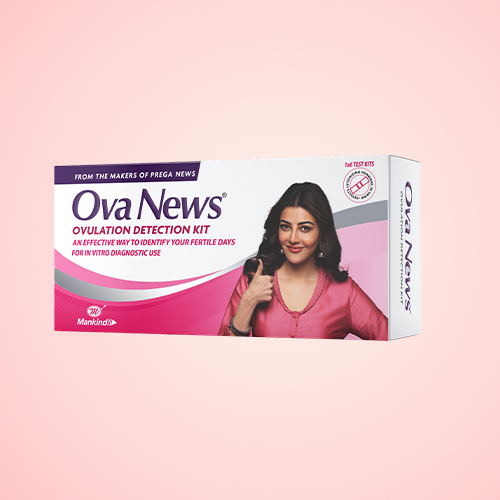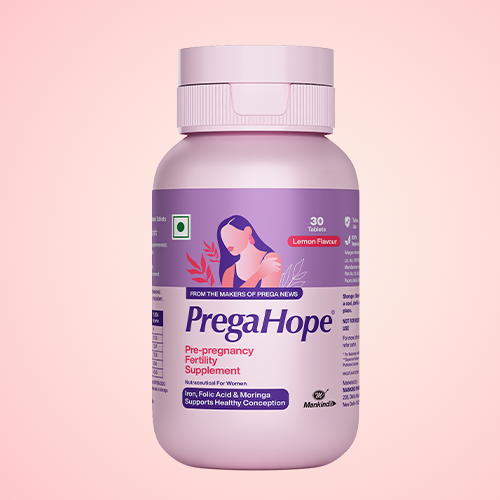Vaginal Dryness: What Are Its Causes, Symptoms & Treatment
Many women worry about vaginal dryness, but it can be hard to talk about. It can change how comfortable, confident and close you feel. When the vaginal tissues aren’t properly lubricated, this condition happens, which can cause pain or discomfort. Knowing what causes Vaginal Dryness, being able to recognise its symptoms and getting the proper Vaginal Dryness treatment can help you feel better and more comfortable.
What Causes Vaginal Dryness?
Before diving into Vaginal Dryness treatment, it’s important to understand what causes Vaginal Dryness. The most common cause is a decrease in estrogen levels, which helps keep the vaginal tissues thick, moist and elastic. Around 17% of women between the ages of 18 and 50 experience vaginal dryness even before menopause, while over 50% face it after menopause due to declining estrogen levels. This makes vaginal dryness one of the most widespread yet underreported issues affecting women’s reproductive health. When estrogen declines, the vaginal walls can become thinner and less lubricated, resulting in Dryness and irritation.
Some significant reasons behind Vaginal Dryness include:
- Menopause and perimenopause arise from diminished oestrogen levels.
- Some medications, like antidepressants or hormonal birth control
- Giving birth or breastfeeding
- Chemotherapy or radiation are two types of cancer treatments.
- Stress, worry, or tiredness from emotions
- Using scented hygiene products or douching
- Conditions like Sjögren’s syndrome or diabetes that are present in the background
Understanding what causes Vaginal Dryness helps identify appropriate Vaginal Dryness treatment options that address the root cause.
Common Vaginal Dryness Symptoms
Vaginal Dryness symptoms vary from mild irritation to constant discomfort. Common Vaginal Dryness symptoms include soreness, itching, burning or pain during intercourse. Some may also experience unusual discharge or spotting, urinary issues or a feeling of tightness. Since Vaginal Dryness can affect both physical comfort and intimacy, early attention is crucial to prevent complications like vaginal infections or reduced sexual satisfaction.
One of the most obvious signs of vaginal dryness is pain during sex. It happens because insufficient lubrication causes things to rub together more, which can irritate the vaginal tissue or cause small tears. Recognising these signs early on can help you find a good treatment for vaginal dryness or natural remedies.
Also Read – Fertility-friendly lubricant
Vaginal Dryness Natural Remedies
For women seeking gentle solutions, Vaginal Dryness natural remedies can offer effective relief without strong medication. Staying hydrated and consuming foods rich in phytoestrogens, such as soy, flaxseeds and chickpeas, can help maintain natural lubrication levels. Vitamin E and omega-3 supplements may also support tissue health and elasticity.
Another essential part of Vaginal Dryness natural remedies is avoiding irritants. Choose fragrance-free soaps and intimate washes and avoid douching. Gentle daily care keeps your vaginal environment balanced and healthy. Spending more time on foreplay before sexual activity can also promote natural lubrication and comfort during intercourse. Including lifestyle habits such as regular exercise and stress management can further enhance hormone balance and support natural vaginal health.
How to Treat Vaginal Dryness
If natural remedies are not enough, there are multiple medical options for treating Vaginal Dryness. Over-the-counter lubricants and moisturisers can provide instant relief by maintaining moisture in the vaginal tissues.
A vaginal moisturiser should be used regularly, not just before intercourse, to keep the tissues hydrated. For sexual activity, choose water-based lubricants over oil-based ones, as they are safer and less likely to cause irritation.
When discussing how to treat Vaginal Dryness, hormone-based therapies are also worth considering. Vaginal estrogen therapy includes creams, tablets, rings or suppositories that deliver estrogen directly to the affected area, improving hydration and elasticity. Women who cannot use hormones may explore prescription non-hormonal creams or oral medications recommended by a doctor. It’s always essential to consult a healthcare provider before starting any Vaginal Dryness treatment to ensure the chosen solution suits your body’s needs.
Also Read – Natural Fertility Boosters
Medical and Prescription Approaches
If the pain doesn’t go away, a gynaecologist may suggest prescription-based treatments for vaginal dryness. These can be low-dose vaginal oestrogen or selective oestrogen receptor modulators (SERMs) that work like oestrogen. They help the vaginal walls regenerate healthy tissue, making them more comfortable over time.
Some women find that using a Vaginal Dryness cream gives them targeted hydration and relief. These creams usually contain ingredients that help calm irritation, add moisture, and prevent micro-tears. Using it as directed regularly can greatly improve the condition of the tissue. But just focusing on the physical treatment might not be enough. Taking care of emotional issues like anxiety, relationship stress, or lack of arousal is just as important for keeping the vagina healthy for a long time.
When to Seek Medical Help

While mild Vaginal Dryness symptoms may improve with natural remedies or lubricants, it’s essential to seek medical guidance if discomfort persists or worsens. Persistent pain, bleeding or severe itching may signal an infection or underlying medical condition. A doctor can perform a pelvic examination and hormone tests to determine the exact cause of Vaginal Dryness and provide personalised recommendations.
Ignoring vaginal dryness for a long time could lead to more urinary infections or less intimacy, both of which can hurt your confidence and quality of life.
Maintaining Vaginal Health Long-Term
In addition to following the prescribed Vaginal Dryness treatment, preventive care plays a vital role. Regular gynaecological checkups help monitor hormonal health, while staying sexually active supports circulation and natural lubrication. Keeping your stress in check, maintaining hydration and practising open communication with your partner all help sustain vaginal well-being.
Choosing breathable cotton underwear and avoiding tight clothing further supports airflow and reduces irritation. A consistent routine of self-care and awareness makes it easier to prevent Vaginal Dryness from recurring.
Frequently Asked Questions – Vaginal Dryness
Q. Can Vaginal Dryness occur before menopause?
Yes, Vaginal Dryness can affect women even before menopause due to medications, breastfeeding or hormonal fluctuations.
Q. What are some effective Vaginal Dryness natural remedies?
Staying hydrated, using coconut oil, consuming estrogen-rich foods and avoiding perfumed soaps are effective natural options.
Q. How to treat Vaginal Dryness at home?
Use vaginal moisturisers two to three times a week, apply lubricants before intercourse and avoid harsh detergents or chemicals in the vaginal area.
Q. Can Vaginal Dryness cream improve comfort instantly?
Yes, Vaginal Dryness cream offers quick relief from discomfort, but it should be used as per medical advice for safe results.
Q. When should I see a doctor for Vaginal Dryness?
If you experience pain, bleeding or consistent irritation even after trying home remedies or treatments, consult a gynaecologist promptly.













































Leave a comment